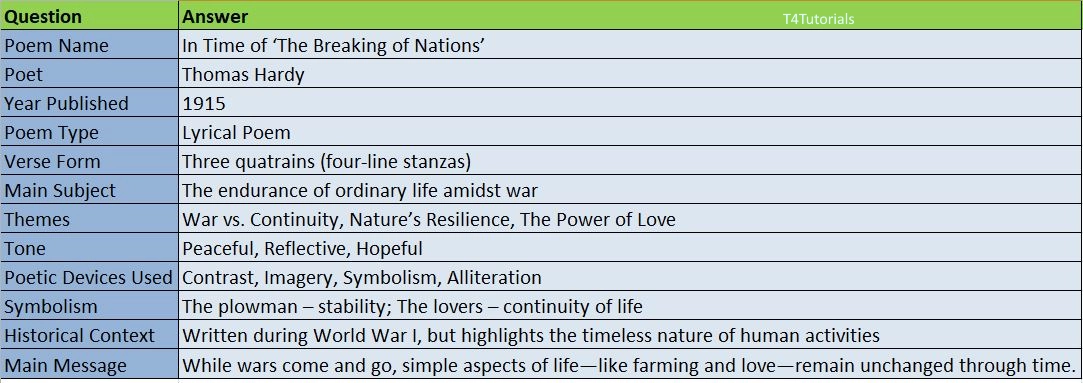Summary:
Thomas Hardy’s poem In Time of ‘The Breaking of Nations’ was written during World War I and reflects on the endurance of everyday rural life despite the destruction caused by war. The poem contrasts the temporary chaos of war with the timeless, unchanging aspects of nature and human existence, such as farming and love. Hardy suggests that while wars come and go, simple and essential human activities—like plowing fields and romantic relationships—will persist. The poem carries a peaceful and hopeful tone, emphasizing continuity and resilience in the face of historical turmoil.
10
Score: 0
Attempted: 0/10
Subscribe
| Question | Answer |
| Poem Name | In Time of ‘The Breaking of Nations’ |
| Poet | Thomas Hardy |
| Year Published | 1915 |
| Poem Type | Lyrical Poem |
| Verse Form | Three quatrains (four-line stanzas) |
| Main Subject | The endurance of ordinary life amidst war |
| Themes | War vs. Continuity, Nature’s Resilience, The Power of Love |
| Tone | Peaceful, Reflective, Hopeful |
| Poetic Devices Used | Contrast, Imagery, Symbolism, Alliteration |
| Symbolism | The plowman – stability; The lovers – continuity of life |
| Historical Context | Written during World War I, but highlights the timeless nature of human activities |
| Main Message | While wars come and go, simple aspects of life—like farming and love—remain unchanged through time. |